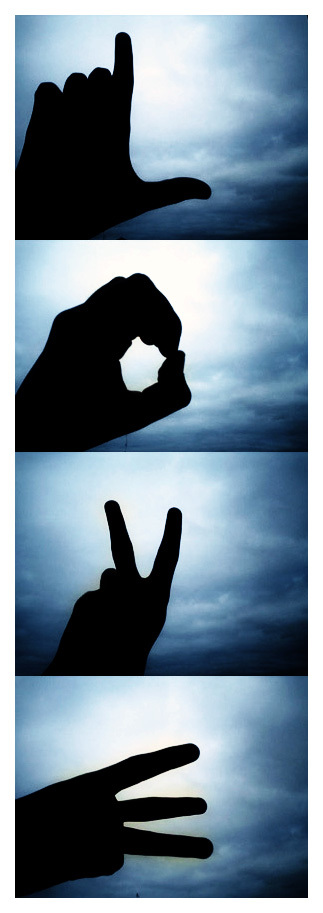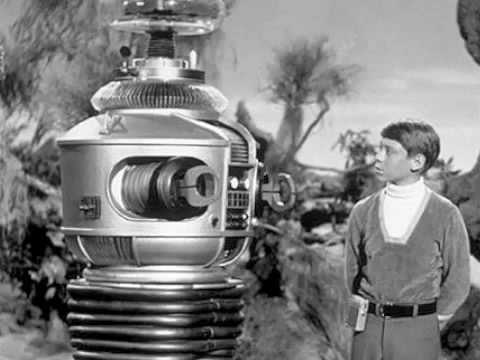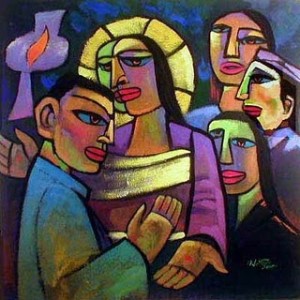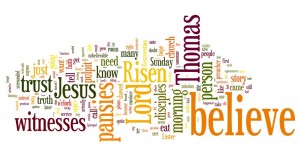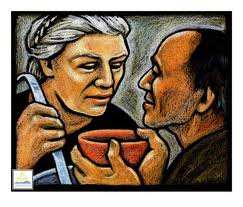Standing on the edge of eternity, looking over the abyss into his own death, knowing what the disciples do not yet know – that he is about to die – Jesus launches into his longest and most complicated discourse, talking first to the disciples – “A new commandment I give you, that you love one another as I have loved you” – and then to God on high – “I am asking on their behalf … protect them ….”
This portion of the Farewell Discourse in John’s Gospel is, as one of my favorite commentators, David Lose, says, “The Other Lord’s Prayer.”[1] Whereas in Matthew and Luke, Jesus teaches his disciples how to pray for themselves, in this case, Jesus is praying for them, and by extension, for us.
Make no mistake here: Jesus is not just praying for his disciples way back 2,000 years ago.
He’s praying for all who follow him: “I ask not only on behalf of these,” he says, in the verse that follows today’s reading, “but also on behalf of those who will believe in my through their word …” (v. 20)
Jesus is asking that God on high, that his Father and our Father: “Protect them from the evil one.”
Why?
Why is Jesus praying for our protection?
I’ll tell you why:
Because love is dangerous! Because love is scandalous! Because love is radical.
Not just any love, but the kind of love of which Jesus is speaking, the kind of love where we lay our lives down for one another, the kind of love that Jesus lived and demonstrated and died for – that kind of love changes everything. That kind of love changes the world!
Don’t believe me?
Look at the first three centuries of Christianity, when it was worth your life to be a Christian – literally worth … your … life – because those Christians, those followers of Jesus upset the Roman apple cart. Those Christians refused to bow to Rome. They refused to acknowledge the Emperor as God. They gathered in groups that broke all the boundaries, bringing together all kinds of people who normally would not spend any time together. They cared for each other. They held everything they had in common. They made sure everyone had enough. They healed the sick. They preached a Gospel of hope and salvation in a time and place when hope and salvation were in very short supply. They proclaimed that their King was a poor, itinerant preacher from Nazareth who was crucified, was buried and who rose from the dead.
Those early disciples?
They didn’t just talk the talk, they walked the walk.
Because they loved.
And love, my friends, is a very dangerous thing. It is incredibly subversive. And it is so radical that the world doesn’t know what to do with it.
Which is why Jesus, standing on that edge of eternity, felt the need to pray for our protection.
Because when we live into our faith … when we live our faith … we are some of the most dangerous people on earth.
The writer Annie Dillard knows how dangerous this faith of ours is. In her book Teaching a Stone to Talk, she wonders:
Why do people in church seem like cheerful, brainless tourists on a packaged
tour of the Absolute? … Does anyone have the foggiest idea what sort of power we blithely invoke? … The churches are children playing on the floor with their chemistry sets, mixing up a batch of TNT to kill a Sunday morning. It is madness (she says) to wear ladies’ straw hats and velvet hats to church; we should all be wearing crash helmets. Ushers should issue life preservers and signal flares; they should lash us to our pews. For the sleeping god may wake someday and take offense, or the waking god may draw us to where we can never return.[2]
Now, granted, Annie Dillard is talking about the act of worship, but I believe that we should not only wear crash helmets in church (because this worship thing we do? It’s pretty dangerous, for a whole lot of reasons), but out into the world.
Heck, we should not only wear those crash helmets into the world, we should warn the world, just like the robot in that old TV show, Lost in Space, the one who warned the young space traveler: Danger, Will Robinson!
We should warn everyone:
Watch out, world! Here we come! We’re on a mission from God, and it’s dangerous as all get out! Because we’re going to love you, whether you like it or not!
Love, my friends, is very … very dangerous indeed.
• • •
Yesterday, I watched a webcast from Washington National Cathedral featuring Presiding Bishop Katharine Jefferts Schori and Archbishop Desmond Tutu, the Nobel Peace laureate and retired archbishop of South Africa.
The discussion centered on mission in the 21st century, and how we are going to live our lives on a mission from God (OK, that’s my term, not theirs, but it applies, trust me …).
At one point, Archbishop Tutu was asked how we, as Christians, as followers of Jesus, can care for those in need. Which is when he pointed out that we spend billions and billions, indeed trillions, of dollars on weapons of mass destruction that we never intend to use, and that for a fraction of that cost – a fraction – we could more than feed the whole world. We could, he said, give clean water to every single person in the world. We could provide medicine to everyone who needs it.
It’s a radical idea, isn’t it, to take care of everyone, instead of focusing on getting ahead, on winning all the time? It’s so radical, it’s actually dangerous!
Which is why we should warn the world: Danger, Will Robinson!
That is, if we are willing to live into this dangerous calling of ours.
Remember, we live in a society is constantly telling us to do: “Take what you want! Don’t worry about anyone else! Get ahead of the Joneses … and the Smiths … and that Garcias … and anyone else you can think of!” This is a society that right now especially is saying, “I’ve got mine and I don’t care if you ever get yours!”
And what is our response?
Well, if we’re willing to live dangerously, our response is, quite simply, “No.”
“We refuse to live according to your standards.”
“We are going to live according to God’s standards.”
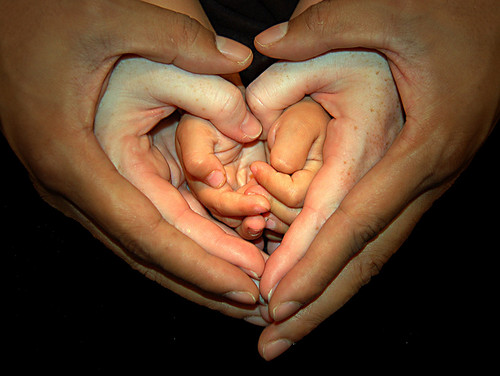 “Which means we are going to love you, whether you like it or not.”
“Which means we are going to love you, whether you like it or not.”
And when the world laughs at us – which it will … when the world tells us, “You better stop that right now, because you’re upsetting the apple cart, and we won’t stand for that” – which it will … when the world attacks us – which it will, we do not have to worry.
Because God will protect us.
Because Jesus did pray for us.
Standing on the edge of eternity … looking over the abyss into his own death – Jesus … prays … for … us.
“Protect them, Father …”
Because they are about to go do something so wild, so radical, so … anti-social … that the world will hate them for it.
They are about to go out into the world … and love.
Amen.
[1]David J. Lose, Marbury E. Anderson Biblical Preaching Chair, Luther Seminary, St. Paul, MN, “The Other Lord’s Prayer,” workingpreacher.com, http://www.workingpreacher.org/dear_wp.aspx?article_id=587
[2] Annie Dillard, Teaching a Stone to Talk: Expeditions and Encounters (New York: Harper & Row, 1982), pp. 40-41.
